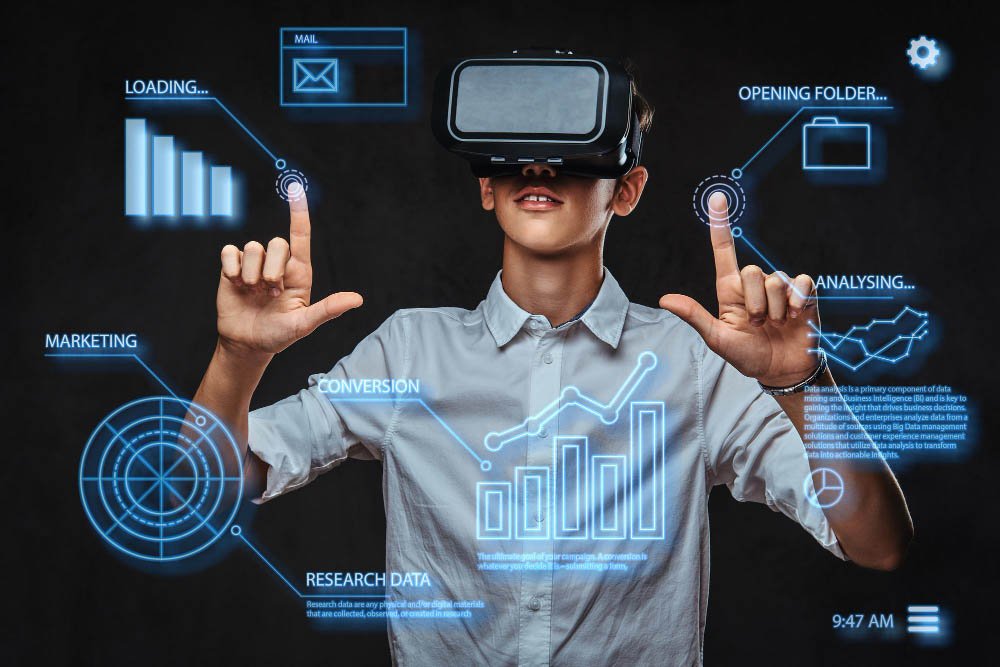Ever feel like you’re sprinting to keep up with the marketing world, only to find the finish line keeps moving? You’re not alone. The pace of change is relentless, driven by rapid technological advancements and shifting consumer behaviors.
Welcome to the expert’s guide to future-proof marketing for 2025 and beyond. This isn’t about chasing fleeting trends; it’s about building a resilient, adaptable, and strategic marketing framework that can weather any storm and capitalize on emerging opportunities.
Forget quick fixes; we’re diving into the sustainable approaches that top marketers are implementing right now to ensure lasting success in a dynamic landscape.
The Imperative of Future-Proofing in a Rapidly Evolving Landscape
First things first, why is future-proofing more critical than ever? The simple answer is that the marketing playbook is being rewritten almost daily. Technological disruptions, particularly the rise of Artificial Intelligence (AI), coupled with increasing privacy concerns and evolving consumer expectations, mean that strategies that worked even last year might be obsolete today.
As one expert puts it, “Marketing is an industry which never stops changing”. Consequently, businesses that fail to adapt risk stagnation or, worse, irrelevance.
Furthermore, the push for integrated marketing, sales, and content teams highlights the need for a more holistic and cohesive approach. Gone are the days of siloed efforts. In 2025, success hinges on creating seamless customer experiences across all touchpoints, driven by a unified strategy and a deep understanding of the customer journey. This necessitates a shift from reactive, short-term tactics to proactive, long-term strategic thinking.
Embracing AI: From Automation to Amplification
Undoubtedly, Artificial Intelligence (AI) is at the forefront of future-proofing marketing strategies. However, experts in 2025 are moving beyond using AI merely for automation. The real transformation lies in leveraging AI to amplify human creativity and deepen customer understanding. It’s about using AI strategically, knowing where to apply automation and where human insight remains irreplaceable.
Predictive Analytics and Audience Segmentation
One of the most powerful applications of AI is in predictive analytics. This technology sifts through massive datasets to forecast customer behaviors, purchasing trends, and even optimal campaign timing. By understanding what customers are likely to do next, marketers can proactively tailor their strategies and offers.
Coupled with this is AI-driven audience segmentation. Machine learning algorithms can identify highly specific audience subgroups based on complex behavioral patterns and evolving interests.
This allows for the creation of hyper-targeted marketing strategies that deliver more relevant and impactful messages, significantly improving ROI and conversion rates. This dynamic segmentation adapts as customer behaviors change, keeping your targeting precise.
Generative AI and Immersive Experiences
Generative AI (GenAI) is reshaping content creation, producing everything from articles to synthetic media at an unprecedented scale. This streamlines the creation of high-quality, audience-specific content, fostering community engagement and offering unique possibilities for campaign innovation.
However, the expert approach isn’t to replace human creativity but to augment it. GenAI is used for rapid ideation and customization while humans guide the strategic direction and brand voice.
Looking ahead, the integration of AI with Augmented Reality (AR) and Virtual Reality (VR) is set to create truly immersive marketing experiences. AI can tailor AR/VR content in real-time, offering personalized product recommendations and interactive advertising that captivates customers and enhances decision-making through realistic product simulations.

The Evolving Search Landscape and Content Strategy
The way people search for information is undergoing a fundamental transformation, driven by AI and changing user habits. Traditional search engines are incorporating AI-generated overviews and summaries (like Google’s SGE), and new AI-powered search platforms are emerging. This profoundly impacts SEO and content marketing strategies.
Adapting SEO for AI-Driven Search
In 2025, experts are re-evaluating their SEO services to align with these changes. This means:
- focusing on semantic search and natural language processing (NLP) to match content with user intent, not just keywords;
- prioritizing high-quality, authoritative content that provides comprehensive answers and unique insights, making it valuable for both users and AI models;
- optimizing for voice search and other emerging search modalities as they become more prevalent;
- building topical authority and demonstrating expertise within specific niches to stand out in AI-generated summaries.
The goal is to create content that is so valuable and well-structured that AI models are compelled to feature it.
The Enduring Power of Diverse Content Formats
While short-form video content remains dominant, especially among younger audiences like Gen Z (who are 17% more likely to watch long-form videos than average consumers), a diversified content strategy is crucial. Experts are emphasizing the importance of owned media – your website, blog, email list – as a sustainable source of growth that you control, unlike rented platforms like social media.
The quality of your product or service remains a top driver for organic brand advocacy, with 51% of consumers promoting favorite brands online due to high-quality offerings. Therefore, content must not only attract but also reflect and reinforce this quality.
Prioritizing Data, Privacy, and Customer Experience
In an increasingly data-driven world, how businesses collect, manage, and utilize customer data – while respecting privacy – is a key differentiator for future-proof marketing. The emphasis is on building connected data and insights to create a holistic view of the customer journey.
Privacy-Safe Measurement and First-Party Data
With the decline of third-party cookies and growing privacy concerns, experts are prioritizing privacy-safe measurement techniques and the strategic use of first-party data. This involves:
- investing in data and tech strategies that allow for the ethical collection and secure management of customer data;
- building robust first-party data sources through valuable content offerings, loyalty programs, and direct customer interactions;
- utilizing tools like Google Marketing Platform (including Google Analytics 360, Campaign Manager 360, Search Ads 360, Display & Video 360, and Google Tag Manager) to understand customer journeys across devices and platforms while respecting privacy.
This focus allows for personalized and efficient customer interactions without compromising trust.
Hyper-Personalization and the Customer Experience
The ultimate goal of leveraging AI and connected data is to deliver truly personalized customer experiences that feel authentic rather than automated. Experts predict that by 2025, AI will enable dynamic content experiences that evolve with each customer interaction, moving beyond simple “if-then” rules.
However, the most successful brands will use this technology to enhance human creativity and strategic thinking, ensuring personalization deepens genuine connections. This commitment to customer-centricity is a cornerstone of future-proof strategies.

Embracing Sustainability and Social Commerce
Two other significant trends shaping future-proof marketing are the growing importance of sustainability and the rise of social commerce.
Authentic Sustainability as a Core Brand Value
Environmental consciousness and social responsibility are no longer just marketing buzzwords; they are essential components of successful brand strategies. However, the focus is shifting from performative gestures to genuine, sustainable business practices that create real positive impact. Successful brands in 2025 will:
- integrate sustainability into their core operations, not just their marketing messages;
- be transparent about their environmental and social impact;
- engage authentically with consumers who are increasingly willing to pay more for eco-friendly products (57% of consumers, according to GWI).
This requires a fundamental shift towards responsible business practices that resonate with conscious consumers.
The Seamless Integration of Social Media and E-commerce
Social commerce continues to gain traction, with 29% of consumers discovering new brands and products via social media ads. Future-proof strategies involve creating seamless shopping experiences directly within social platforms, reducing friction and capitalizing on impulse purchases.
This means leveraging features like Instagram Shops, TikTok Shopping, and other platform-specific e-commerce tools to allow users to discover and buy products without leaving their social feeds. Experts are focusing on creating shoppable content that is both engaging and directly transactional.
Building an Agile and Strategic Marketing Future
Future-proofing your marketing in 2025 isn’t about finding a crystal ball; it’s about building an agile, data-driven, and customer-centric marketing ecosystem.
The experts agree: success hinges on shifting from short-term tactics to long-term strategy, strategically embracing AI to amplify human capabilities, prioritizing owned media and high-quality content, adapting to the evolving search landscape, and championing data privacy while delivering hyper-personalized experiences.
Furthermore, authentically integrating sustainability and leveraging the power of social commerce will be key differentiators. Ultimately, the most successful brands will be those that balance innovation with proven fundamentals, continuously learn and adapt, and place genuine human connection at the heart of their technologically advanced marketing efforts.

